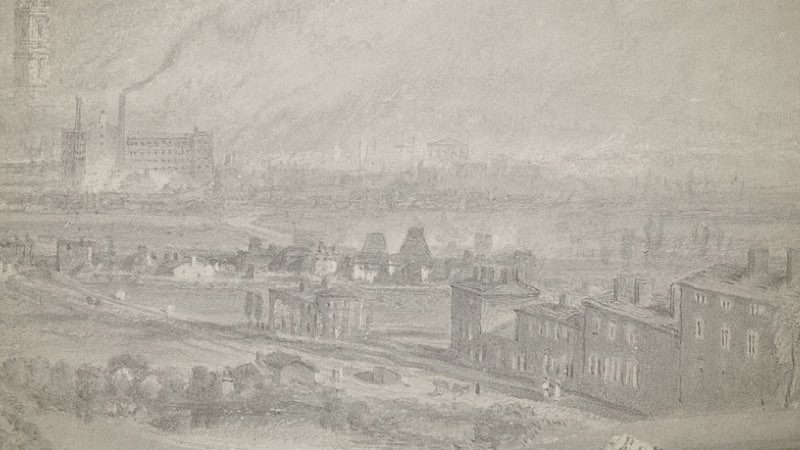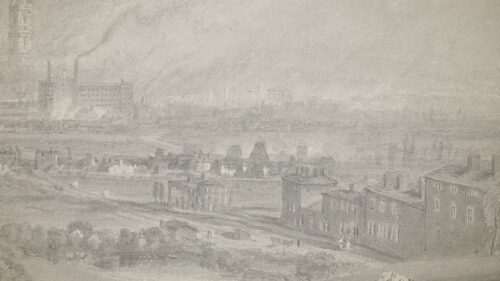
The Life And Testimony Of Richard Davis
John Gill’s Preface To Richard Davis’ “Hymns Composed On Several Subjects, And On Divers Occasions” (1748)
As I had the honor in my youth of knowing the worthy author of the following hymns, being born (at Kettering in Northamptonshire) and brought up within a very few miles of the place (Rowel, also Rothwell, the same county) where he statedly ministered, I was the rather inclined at request to write a preface to them. His memory has been always precious to me, partly on account of his great regard for my education, for which he was heartily concerned, and also for my spiritual and eternal welfare. I well remember, though very young, that having discovered some eager desire after some part of literature, he though fit to suggest to me what was more valuable, by repeating the following distich,
Si Christ bene scis, fatis est, si caetera nescis,
Si Christum nescis, nihil est, si caetera discis.
“If you knew Christ well, it is no matter, though you are ignorant of many other things; if you are ignorant of Christ, other knowledge will avail but little;” and chiefly on account of his very powerful and evangelical ministrations. He was a very lively, warm and zealous preacher of the gospel; his light in it was very uncommon, clear and distinct, which he communicated and diffused not only in the place and county in which he lived, but in several adjacent counties, being indefatigable in preacher the word in season and out of season; in which he was greatly succeeded to the conversion of many, and to the spreading of gospel-light in several parts, which in some measure still continues. He was a Boanerges, a son of thunder, when he delivered out the law in its proper place and manner; and a Barnabas, a son of consolation to distressed sinners, and drooping saints; his great usefulness raised him many enemies; never was any many more traduced, reproached and columnated; and never did any less deserve it, being eminent for humility, piety, and an unblemished life and conversation; though his principles were charged as licentiousness, and loaded with the odious name of Antinomianism.
The great sense he had of the everlasting and unchangeable love of God the Father in eternal election in the covenant of grace, and in the mission of His Son; the high esteem he had for the person and offices of Christ; his strict regard to the honor of the Holy Spirit, and to His operations of grace upon the heart; and his zeal for the glory of the three divine persons, and for the good of immortal souls, are easily discerned in the following hymns; which though they may be thought, by nice and critical judges, to be destitute of those poetical flights and beauties which adorn and recommend verse to men of polite taste; yet these supposed deficiencies are abundantly made up to those who have tasted that the Lord is gracious, by that spiritual devotion and affection, and by those gleams of gospel-light which appear throughout the whole.
And though I have, some years ago (in a discourse on singing Psalms, from 2 Cor. 14:15, published in 1734) declared my sentiments, that the psalms of David are most fit and proper to be sung in the churches of Christ; yet I never denied, nor do I deny, that hymns and spiritual songs composed by good men, though without the inspiration of God, may be made use of, and be useful, provided that they are agreeable to the sacred writings, and the analogy of faith; and especially such as are written in an evangelistic strain, as the following hymns are.
I have only one thing more to observe, that whereas the phrase of offering Christ and grace, is sometimes used in these hymns, which may be offensive to some persons; and which the worthy author was led to the use of, partly through custom, it not having been at the writing of them objected to, and partly through his affectionate concern and zeal for gaining upon souls, and encouraging them to come to Christ; I can affirm upon good and sufficient testimony, that Mr. Davis, before his death, changed his mind in this matter, and disused the phrase, as being improper, and as being too bold and free, for a minister of Christ to make use of; and though I have not thought fit to alter any words and phrases in the revise of these hymns, yet in the use of them in public service, those who think proper, may substitute another phrase in its room more eligible. I earnestly desire, that the divine Spirit would make the reading and singing of these hymns, of use to the magnifying of the free grace of God, to the exaltation of Christ, to the debasing of the creature, and to the comfort and refreshment of the Lord’s people, as they often have been; and for those ends and purposes, I do heartily recommend them to every lover of Christ and His gospel, who profess myself to be of that number, and esteem it my greatest honor, to be reckoned one of them.
John Gill
Richard Davis (1658-1714) was a High-Calvinist Independent gospel preacher. In 1689, he was appointed pastor of the church meeting at Rothwell, Northamptonshire, a position he held for twenty-five years. Although his testimony was heinously smeared by many of his ministerial peers, the integrity of his life and ministry has subsequently been vindicated. He is best remembered for “originating that system of sending out lay preachers which was subsequently adopted by Mr. Wesley, so he seems to have anticipated in some measure the Experience Meetings which form so prominent a feature of Methodism.” He was also an early influencer of John Gill during his youth.
Robert Vaughan, in his “English Nonconformity”, wrote of him—“Mr. Richard Davis, a Welshman, pastor of an Independent church at Rothwell, in Northamptonshire, possessed the spirit of a Whitfield, and surrendered himself to the promptings of his generous nature. His passion to proclaim his faith to the ignorant and perishing, even by means of laymen and of humble artisans, scandalised the professional pride of his brethren. The bold man was not silenced by the formidable opposition made to him. But its effect was, that his kind of labour appears to have died with him. Under wiser influences the great evangelical revival in England might have dated from the former half of the Eighteenth century instead of the latter.”




